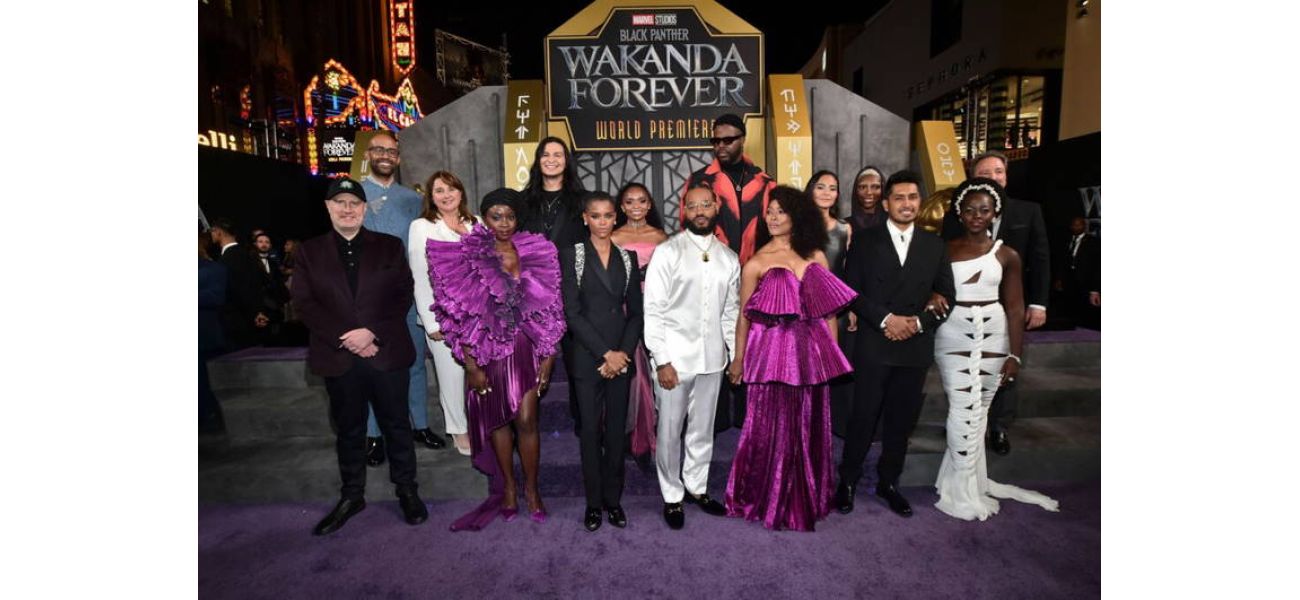Movies to view during February to celebrate Black culture and history.
Black History Month honors Black culture and recognizes the important role Black filmmakers have played in sharing and preserving it through their work.
February 11th 2025.

Black History Month is a time to honor, educate, and celebrate the rich culture of the Black community. In this regard, the contributions of Black filmmakers cannot be overlooked. Through their powerful films, these directors have provided a unique perspective on important events and stories, allowing us to see the world through their lens.
One such film is "Selma," directed by the talented Ava DuVernay and released in January 2015. The movie depicts the historical events surrounding the historic march from Selma to Montgomery in 1965, led by the iconic civil rights leader, Dr. Martin Luther King Jr. "Selma" sheds light on the struggles and sacrifices of these brave individuals in their fight for voting rights and equality.
Another impactful film is "Fruitvale Station," written and directed by Ryan Coogler and released in July 2013. Set in Oakland, California, the movie tells the story of 22-year-old Oscar Grant, a Black man who was tragically killed by a police officer. Through this heartbreaking story, "Fruitvale Station" addresses issues of racism, police brutality, and systemic injustice.
In February 2021, "Judas and the Black Messiah" hit the screens, directed by Shaka King. The film portrays the true story of activist Fred Hampton and his betrayal by William O'Neal, set in the late 1960s in Chicago. "Judas and the Black Messiah" highlights the power and influence of the Black Panther Party and the lengths the government went to suppress their movement.
Spike Lee, a native of Brooklyn, New York, has also made his mark in the film industry with his masterpiece, "Do the Right Thing." Released in 1989, the movie is set in Lee's hometown neighborhood and explores the racial tensions between Black and white communities. Through this thought-provoking film, Lee brings to light issues of gentrification, police brutality, and racial injustices.
"Boyz N the Hood," written and directed by John Singleton, debuted in July 1991. The film is set in South Central, Los Angeles, and portrays the challenges faced by young Black men, such as gang violence, teen fatherhood, and police profiling. Singleton does an excellent job of showcasing the harsh realities of urban communities and emphasizing the importance of education, family, and mentors.
In February 2017, Jordan Peele stunned audiences with his directorial debut, "Get Out." This suspenseful film delves into the horrors of cultural appropriation, fetishization of Black people, and the insidious nature of white privilege. Peele's thought-provoking masterpiece is a must-watch for anyone seeking to understand these complex issues.
"King Richard," directed by Reinaldo Green and released in November 2021, is a heartwarming film about the father of tennis superstars Serena and Venus Williams. The movie follows Richard's journey as he nurtures and coaches his daughters to become two of the greatest athletes of all time. Set in Compton, California, "King Richard" showcases the resilience, determination, and confidence of the Black community.
Spike Lee makes another appearance on this list with his 1992 film, "Malcolm X." The biographical drama chronicles the life of the influential activist, from his troubled youth to his role in the Nation of Islam and the Civil Rights Movement. "Malcolm X" takes viewers on a journey through Malcolm's life, from his time in Michigan to his pilgrimage to Mecca. This powerful film is a must-watch during Black History Month.
"Dear White People," written and directed by Justin Simien, debuted in October 2014. The film follows four Black students at a predominantly white university as they navigate issues of racial identity and systemic racism. Through its witty and thought-provoking narrative, "Dear White People" sheds light on the tokenism, racism, and microaggressions faced by Black students at majority-white institutions.
In conclusion, these nine films by Black directors push boundaries and showcase the artistic innovation of the Black community. They serve as a source of inspiration and reflection, encouraging a new generation to continue telling their own stories through film. As we honor Black History Month, let us celebrate the impact and legacy of these talented filmmakers.
One such film is "Selma," directed by the talented Ava DuVernay and released in January 2015. The movie depicts the historical events surrounding the historic march from Selma to Montgomery in 1965, led by the iconic civil rights leader, Dr. Martin Luther King Jr. "Selma" sheds light on the struggles and sacrifices of these brave individuals in their fight for voting rights and equality.
Another impactful film is "Fruitvale Station," written and directed by Ryan Coogler and released in July 2013. Set in Oakland, California, the movie tells the story of 22-year-old Oscar Grant, a Black man who was tragically killed by a police officer. Through this heartbreaking story, "Fruitvale Station" addresses issues of racism, police brutality, and systemic injustice.
In February 2021, "Judas and the Black Messiah" hit the screens, directed by Shaka King. The film portrays the true story of activist Fred Hampton and his betrayal by William O'Neal, set in the late 1960s in Chicago. "Judas and the Black Messiah" highlights the power and influence of the Black Panther Party and the lengths the government went to suppress their movement.
Spike Lee, a native of Brooklyn, New York, has also made his mark in the film industry with his masterpiece, "Do the Right Thing." Released in 1989, the movie is set in Lee's hometown neighborhood and explores the racial tensions between Black and white communities. Through this thought-provoking film, Lee brings to light issues of gentrification, police brutality, and racial injustices.
"Boyz N the Hood," written and directed by John Singleton, debuted in July 1991. The film is set in South Central, Los Angeles, and portrays the challenges faced by young Black men, such as gang violence, teen fatherhood, and police profiling. Singleton does an excellent job of showcasing the harsh realities of urban communities and emphasizing the importance of education, family, and mentors.
In February 2017, Jordan Peele stunned audiences with his directorial debut, "Get Out." This suspenseful film delves into the horrors of cultural appropriation, fetishization of Black people, and the insidious nature of white privilege. Peele's thought-provoking masterpiece is a must-watch for anyone seeking to understand these complex issues.
"King Richard," directed by Reinaldo Green and released in November 2021, is a heartwarming film about the father of tennis superstars Serena and Venus Williams. The movie follows Richard's journey as he nurtures and coaches his daughters to become two of the greatest athletes of all time. Set in Compton, California, "King Richard" showcases the resilience, determination, and confidence of the Black community.
Spike Lee makes another appearance on this list with his 1992 film, "Malcolm X." The biographical drama chronicles the life of the influential activist, from his troubled youth to his role in the Nation of Islam and the Civil Rights Movement. "Malcolm X" takes viewers on a journey through Malcolm's life, from his time in Michigan to his pilgrimage to Mecca. This powerful film is a must-watch during Black History Month.
"Dear White People," written and directed by Justin Simien, debuted in October 2014. The film follows four Black students at a predominantly white university as they navigate issues of racial identity and systemic racism. Through its witty and thought-provoking narrative, "Dear White People" sheds light on the tokenism, racism, and microaggressions faced by Black students at majority-white institutions.
In conclusion, these nine films by Black directors push boundaries and showcase the artistic innovation of the Black community. They serve as a source of inspiration and reflection, encouraging a new generation to continue telling their own stories through film. As we honor Black History Month, let us celebrate the impact and legacy of these talented filmmakers.
[This article has been trending online recently and has been generated with AI. Your feed is customized.]
[Generative AI is experimental.]
0
0
Submit Comment





